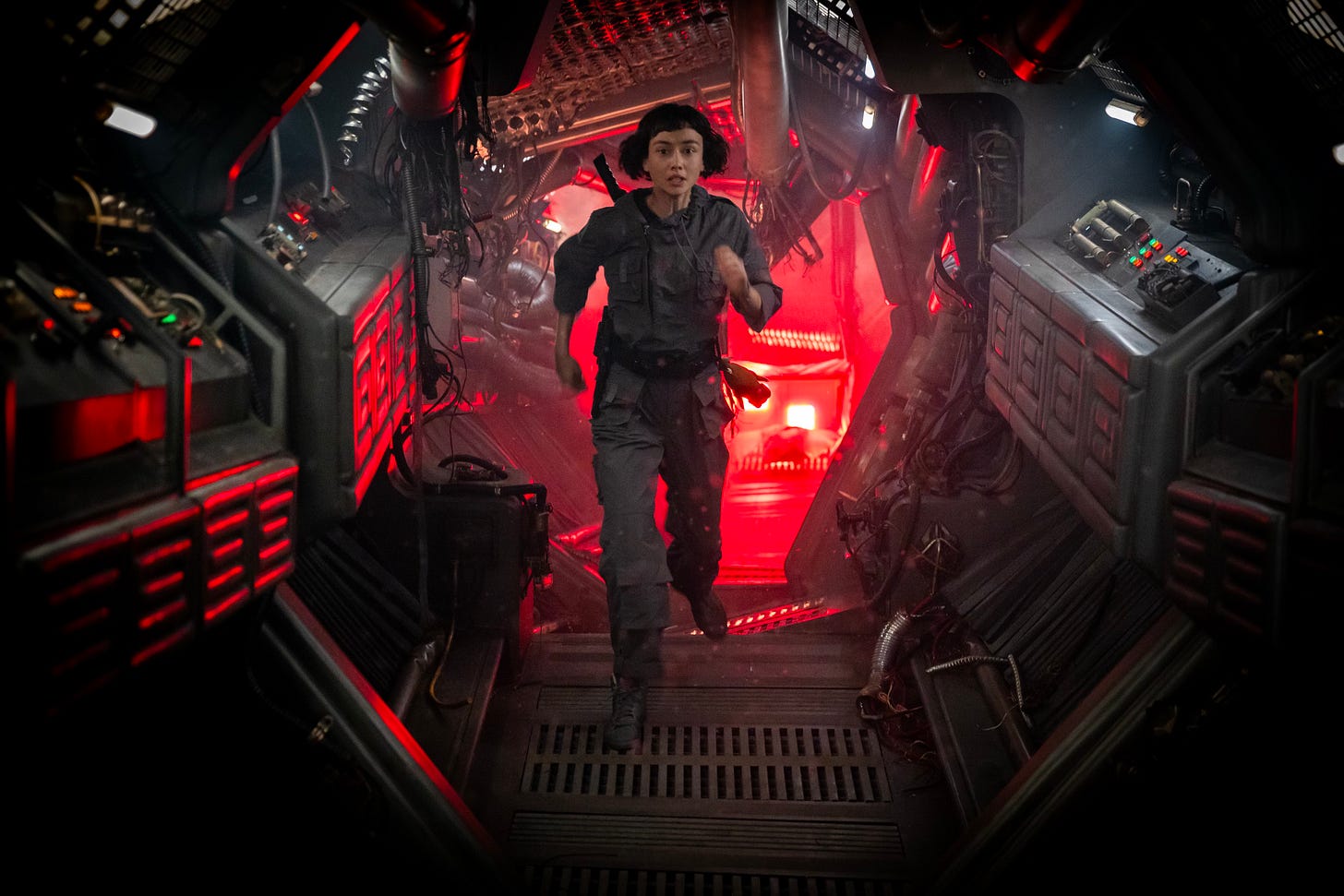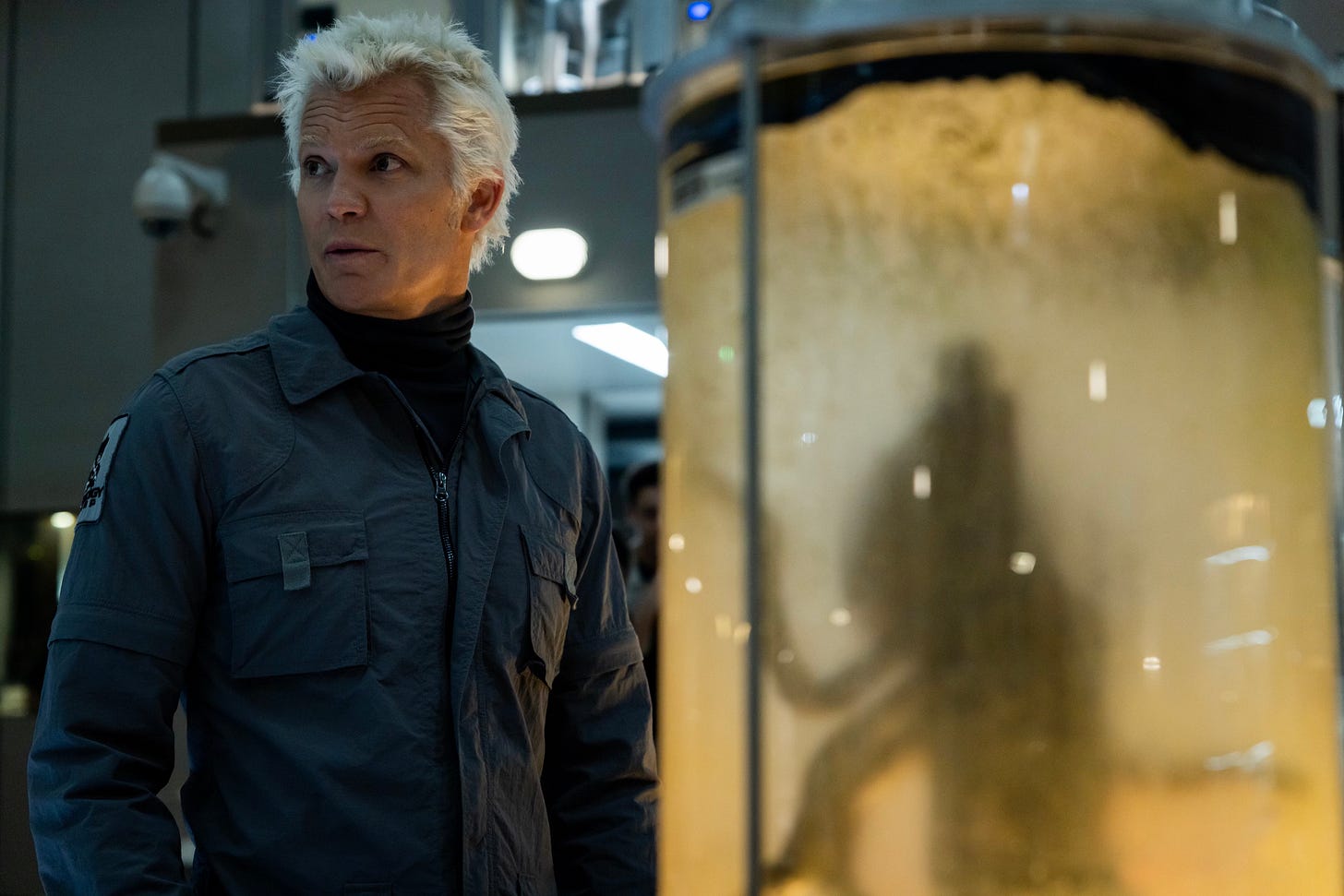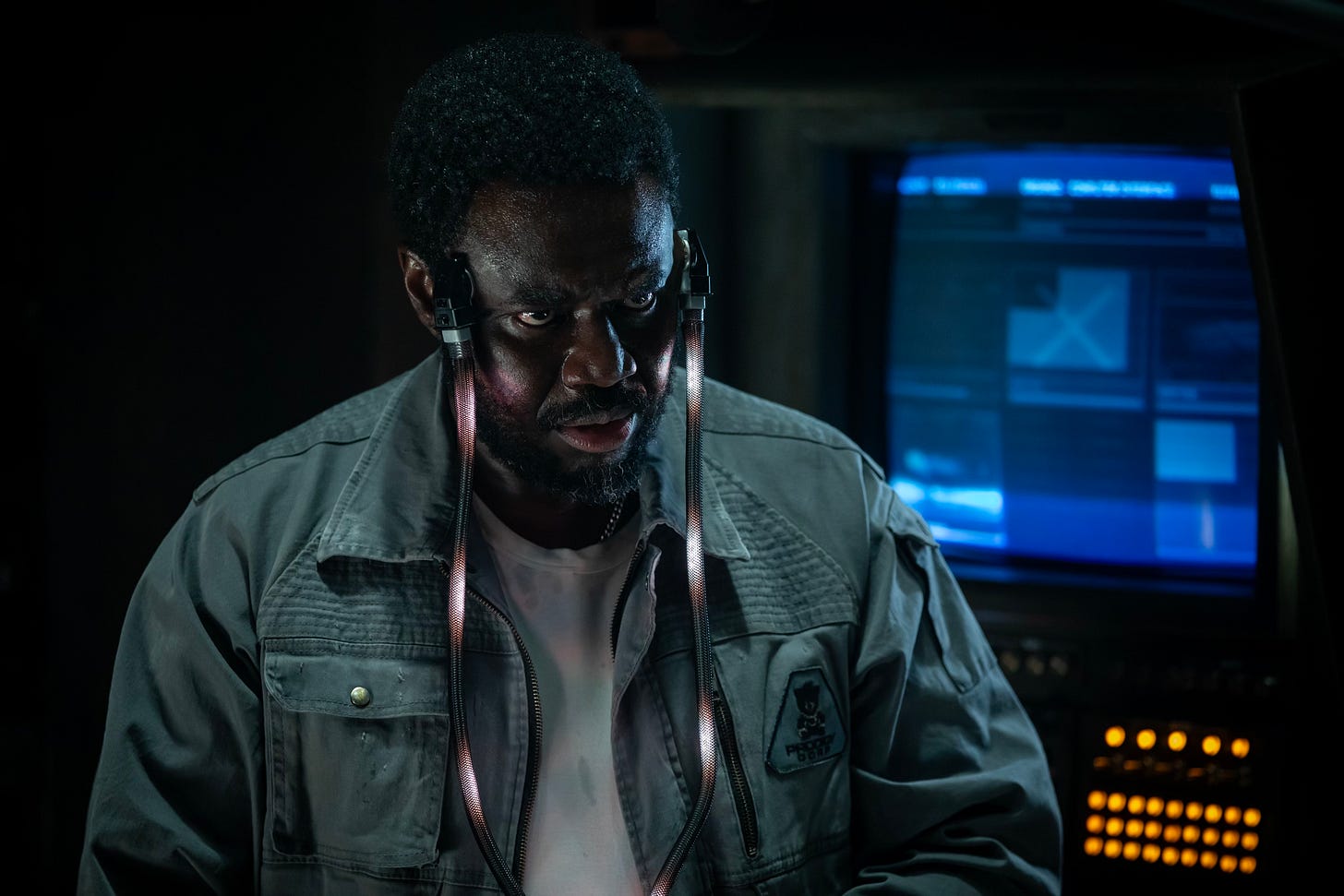‘Alien: Earth’ S1E03 Review | “Metamorphosis”
In which the xenomorph is far from the galaxy’s only parasite.

[This review contains spoilers for the third episode of Alien: Earth, “Metamorphosis”]
One of the elements about the xenomorph that makes it particularly unnerving is the way it takes control of a host. As memorable as the original chestburster scene from Ridley Scott’s Alien is, it’s also a clever way of taking fears of childbirth and applying them to everyone regardless of gender. The horror is that your body is no longer your own, and the loss of physical autonomy can create a dual consciousness of sorts. But we accept this as a natural part of the life cycle because it perpetuates the species. The parasite disrupts this process, putting its needs ahead of the host’s, and instead of the intended symbiosis of birth, we have a battle between two species – one where the parasite dominates.
In its third episode, Alien: Earth expands the parasitical nature of the xenomorph far beyond the creature to show a world swarming with parasites. The first two episodes emphasize the symbolism by showing the other alien species having a parasitical nature, but Noah Hawley’s series makes this even more overt through the storylines in “Metamorphosis.” The dark subtext of the episode is that while selfless action carries a high cost, those who would use others and invade their minds and bodies tend to thrive. We’re way beyond just the xenomorph forcing itself down people’s throats.
The selflessness we see comes early in the episode with Wendy’s rescue of Hermit, but it comes with serious injuries to both siblings. It’s rare to take on a xenomorph directly, without heavy artillery, and still win. Wendy (and to some extent, Boy Kavalier) overestimates her abilities, and while she’s able to slice the xenomorph in two, she also suffers some kind of critical damage, passing out alongside Hermit, who gets impaled by the creature’s tail during the fray.
With both Wendy and Hermit largely unconscious for most of the episode, our story turns towards our supporting figures. In my review of the first two episodes, I lamented that Morrow’s scenes seemed largely confined to showing up and being a bad guy while alien species wreak havoc. In “Metamorphosis,” we finally gain a greater understanding of who he is and what his motivations are. He’s a damnable figure, but one who is fully aware of how damned he is. He’s a cyborg, and while that gives him special abilities, he still retains human morality. He says he’s “the worst parts of a man,” and it makes us eager to learn more about why this person would choose the servitude typical of synths, but also retain the morality to recognize the brutality of his actions. It’s an important distinction between Morrow and a character like Ash from Alien, who also performs horrendous deeds, but as an unbothered synth.

We also see Morrow as a relentless force, although not a machine of constant brutality. When he meets the hybrids Slightly and Smee, he views them with curiosity, and implants Slightly with some kind of device before running off from the threat of Kirsh. When Morrow makes contact with Yutani, he emphasizes that the only thing that’s left for him is the mission of recovering the alien species. He almost seems to be trying to shed every ounce of humanity and compassion. Everyone he used to know, from the former Yutani to his own daughter, is gone, and so getting the alien species back at least gives him purpose. He also sees Slightly as his way into Prodigy’s facility.
This is where we start to gain a sense of the parasitism at play beyond the xenomorph. Morrow, through his device, can get into Slighty’s head and communicate with him. The scene between Slightly and Morrow is a potent reminder that all the hybrids are children, and while they now inhabit adult bodies, they lack adult emotions, which can make them easy prey for someone like Morrow, who tells Slightly he just wants to be his friend. Boy Kavalier can make the Lost Boys fast and strong, but he can’t program in “Stranger Danger.”
Speaking of Boy Kavalier, we continue to understand him as not some benevolent Peter Pan, but perhaps the show’s biggest monster, a constant torrent of arrogance and impulse, daring anyone to stop him. He announces that their search-and-rescue is now a raid, and that the specimens on board the Maginot now belong to Prodigy. While he’s not wrong that he has the facilities to study the creatures, he also seems gleefully indifferent to how dangerous they could be. He almost gets a facehugger for his troubles before Kirsh (Timothy Olyphant brilliantly playing the synth’s quiet exasperation in this episode) stops his master looking too closely at the moist alien egg.
But we also need Boy around as a reminder of how his actions—taking human children and uploading them into synthetic bodies—are about how he’s not the only creature blurring the lines in this episode. Morrow is getting data uploaded to his brain, Slightly’s mind gets hacked by Morrow, Nibs is having hallucinations after her traumatic interaction with the eyeball alien, the xenomorph somehow becoming a part of Wendy’s consciousness when she wakes up, and the people at Prodigy appear to be implanting Hermit’s lung with a living creature extracted from a facehugger. For more than one of our major characters, their mind and/or body are no longer fully their own. Someone else wants a piece of them and will invade their being to achieve independent aims.
When the xenomorph has no more use for a host, the host dies. The xenomorph will burst its way out, or, as we see early in the episode with Hermit, attempt to save its prey for later implantation. Do we really think the parasites we see in this episode, from Morrow to Boy Kavalier to Prodigy to Weyland-Yutani, will behave any differently?

Stray observations:
As I noted for last week’s episodes, having several characters be children (albeit in adult bodies) is a genius move for the show. Outside of Newt from Aliens, we’ve never seen children in these stories, and watching them bounce off each other, like we see with Slightly and Smee, makes us feel protective. They are the innocents of this world, and no one seems to have their best interests at heart.
There’s a dark irony when Morrow assumes the hybrids are regular synths and says, “You don’t have parents,” to Slightly while he simultaneously uploads information to a machine called “Mother” (“MU/TH/ER” if you want to get technical about it). What exactly is a “parent” in this world? It’s another reminder of how family bonds are a rarity in this future, and we’re more likely to get cold facsimiles rather than the real thing like Wendy and Hermit.
I’m fascinated by the logistics of how you transport a creature that’s leaking corrosive acid from one place to another. How do you pick it up? Did they already have a box for an acid-blooded alien, or did they have to make one?
Alien: Earth airs Tuesday nights at 8pm ET on Hulu. Look for recaps of the latest episodes here within the next day. Matt Goldberg is a film critic who lives and works in Atlanta. If you enjoyed this review, check out his newsletter, Commentary Track.
